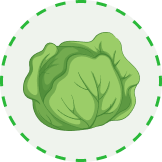Agriculture and farming are essential industries
Read More Cargill Agriculture Investment
Cargill Agriculture Investment
 Cargill Agriculture Investment
Cargill Agriculture Investment




We are a family company providing food, ingredients, agricultural solutions and industrial products that are vital for living. We connect farmers with markets so they can prosper. We connect customers with ingredients so they can make meals people love. And we connect families with daily essentials — from eggs to edible oils, salt to skincare, feed to alternative fuel.
Read MoreTeam member
Winning award
Complete project
Client review
Great partnerships are built on trust, mutual respect, open communication and the ability to listen to and challenge each other. Cargill clients have come to expect nothing less.
We share our knowledge, expertise, and network with our clients and their families and encourage our clients to independently understand and assess products and performance and decide what services are right for them.
The Cargill team believes that intensive, continuous research, disciplined risk management and conviction are essential ingredients to achieving the best possible performance for our clients and to sustaining the legacy we have built together.
Our clients’ trust is our capital. Your interests are our driver: the investment process, transparent cost structure and integration of regulatory developments into our business model are geared to enable us to deliver performance to you.
Clients turn to Cargill for tailor-made managed equity portfolios. We develop the right solutions, structuring accounts and investments to meet our clients’ needs and we have the agility to adapt and re-balance your portfolio as and when the need arises.
Investing in agriculture means putting your money behind food and crop production, processing, and distribution. As the world needs to feed a growing population and with less land, interest in agriculture production as an investment has grown right along with the world population.
There are many reasons to invest in agriculture: it is a low-risk investment that keeps pace with inflation and increases in value over the long-term, it is a tangible asset that provides benefit to the community, and it can diversify a portfolio. But how exactly does an investment like this make money? Depending on the investment and the type of farm, investors can profit through several different ways. We’ve covered five of the most common ways agriculture generates returns below.
Investors can make money from cash flow from crops that are harvested. Most crops are annual, but in some locations there can be multiple harvests per year. In certain cases, these yields are secured via long-term contracts with tenant farmers or from customers who agree to purchase the crops. It is also important to note that crop insurance, which protects the farmer in the event of a catastrophe, also protects the investor. This means that even if crops are destroyed or their revenue declines due to declines in commodity prices, the farmer will still receive funds with which they can pay their lease.
Farmland is a limited resource in the sense that almost all arable land in the United States is already in use. Farmable land has decreased due to urban sprawl and land development, making the remaining land even more valuable. Because of this, farmland is appreciating in value, which is beneficial for investors. Residential development can also cause farmland to increase in value; if the land is located close to a residential area, the land value increases with the potential to sell the land as development encroaches.
Much like in real estate, an investor can add value to their property by making improvements. In agriculture, this can include turning raw land into crops or pastureland. Also, swapping out lower-end crops such as commodity or row crops to higher-end crops like trees, or converting farmland from conventional farming to higher return organic farming can increase the value of the investment. Equity can also be built by improving the buildings and infrastructure on the land. These changes will increase the value of the land and can lead to larger profits when the investor decides to sell it.
There are many different ways to generate income on farmland, and many of them are unrelated to the crops being grown. If the farmland contains a large body of water, water rights can be sold or rented. For farmland that is located near a major road, there may be an opportunity to generate income from billboards placed on the land or from cell and radio towers that are built. In some cases, it may be possible to sell recreation or hunting leases on timberland or near waterways.
In addition to forced equity, farmland can naturally accumulate equity in a similar way that real estate accumulates equity as mortgage payments are made. If there is a note (debt) on the land, income from the farm will be used to pay down the principle, and equity will begin to accumulate.
Investing in agriculture may not provide immediate returns, but over the long-term, it can pay off greatly. There is much less volatility in farmland and timberland than in other types of investments, meaning adding agriculture to your investment portfolio can provide continual stability with the potential for an annual income.



Agriculture farming are the essential

Agricultural operations

Farming endeavors

Agriculture farming are the essential
Agriculture and farming are essential industries that involve the cultivation of crops, raising of livestock, and production of food.


Agriculture and farming are essential industries that involve
Read More
Agriculture and farming are essential industries that involve
Read More
Agriculture and farming are essential industries that involve
Read More


It is a long established fact that a reader will be distracted